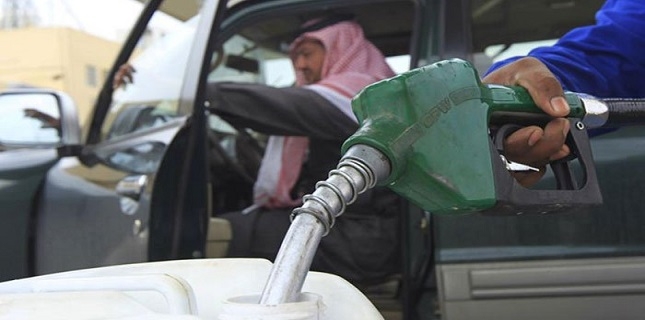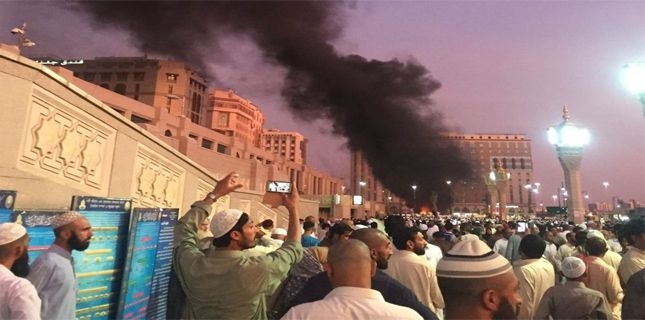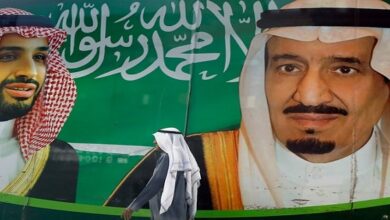Three Reasons behind Fuel Price Hike in Saudi Arabia

Saudi Arabia started its new year with gasoline prices hike, allowing the fuel price to sharply increase by 80 percent.
About gasoline, the Octane 91 will sell for 1.37 riyals (0.36 U.S. Dollar) a liter, up from 0.75 riyals (0.2 U.S. Dollars), while Octane 95 will sell for 2.04 riyals (0.544 U.S. Dollars) a liter, up from 0.90 riyals (0.24 U.S. Dollars), the country’s news agency SPA reported on Monday.
The oil-dependent monarchy also for the first time in its history activated the Value-Added Tax (VAT) since January 1. It is a five percent tax on most goods and services to boost revenue, like food, clothes, electronics and gasoline, as well as phone, water and electricity bills, and hotel reservations. The VAT activation comes while many foreign investors for years have been granted tax exemptions across the Persian Gulf region.
Last year, Saudi Crown Prince Mohammad bin Salman unveiled an ambitious plan, dubbed Vision 2030, to reduce the reliance of the national economy on oil. The Vision 2030 document says that the government subsidies to the public without clear standards presents a major obstacle ahead of the energy sector competitiveness. It, additionally, suggests that free price mechanism in the long run will increase efficiency and competitiveness among the public service companies, and will open the door to investment and diversification of the nation’s energy sources.
It appears that the kingdom is determined in resorting to “shock therapy” to fight the negative effects of a several-year delay of the price reform. Studies have found that the government subsidies for energy in the oil-rich states have lead to increased reliance on the oil incomes. This type of countries have given a shift to their subsidies policy as in the past few years the oil price has been dropping. A majority of the oil-rich countries faced huge budget deficit mainly put down to the low oil prices. They took steps to combat the budget cash loss. Price reform is one of the ways helping the governments pay less in subsidies. This measure, along with reducing the national budget shortcoming, takes the economy away from dependence on money earned from oil sales.
According to a new long-term financial policy published last month, Saudi Arabia is scheduled to fully cease subsidization of the energy locally until 2023. From this year, the local companies will price various fuels according to a free mode, mainly determined by the global energy prices.
Three reasons can be suggested for the gasoline price hike in the kingdom:
Diversifying the government incomes
One of the key drives behind the fuel price hike is diversification of the regimes incomes amid sagging oil prices and huge budget deficit with which Saudi Arabia has been grappling since 2014. The 2018 budget of Saudi Arabia maintains that the regime has to tackle deficit by increasing the fuel prices as well as introducing the VAT.
Cutting reliance on oil cash
The Saudi leaders over the past decades have been struggling to distance from the need for oil sales money and rid the economy from its status of being mono-product. Amid a serious oil prices drop which meant lower incomes between 2014 and 2017, the Saudi leaders have been more motivated in their moving towards less reliance on oil. Despite the fact that breaking with the oil incomes and at best 50 percent cut in reliance on this money looks very difficult, and as many analysts put it, is almost unlikely, the Saudi Arabian rulers appear to have locked onto this aim. After all, reduction in the money made from crude sales restricts their more adventuring in the region.
More efficient consumption
The third aim is to optimize energy consumption in the country. Pushing up the prices is one of the ways leading to this aim. Higher oil prices will, on the one hand, reduce consumption, and improve the quality of the hydrocarbon products, on the other hand.
Having in mind that a majority of the oil-reliant Arab states of the Persian Gulf region subsidize gasoline and diesel in a bid to stay in power and remove the grounds for social discontentment and even protests, the question is that how will the Saudi society react to the price and tax increase after decades of addiction to the regime-paid subsidies.





